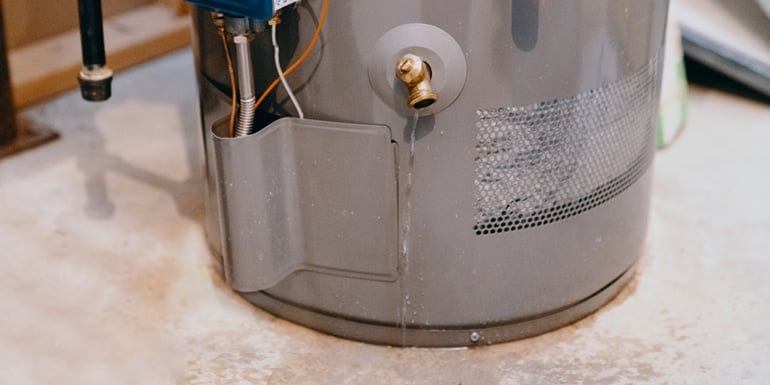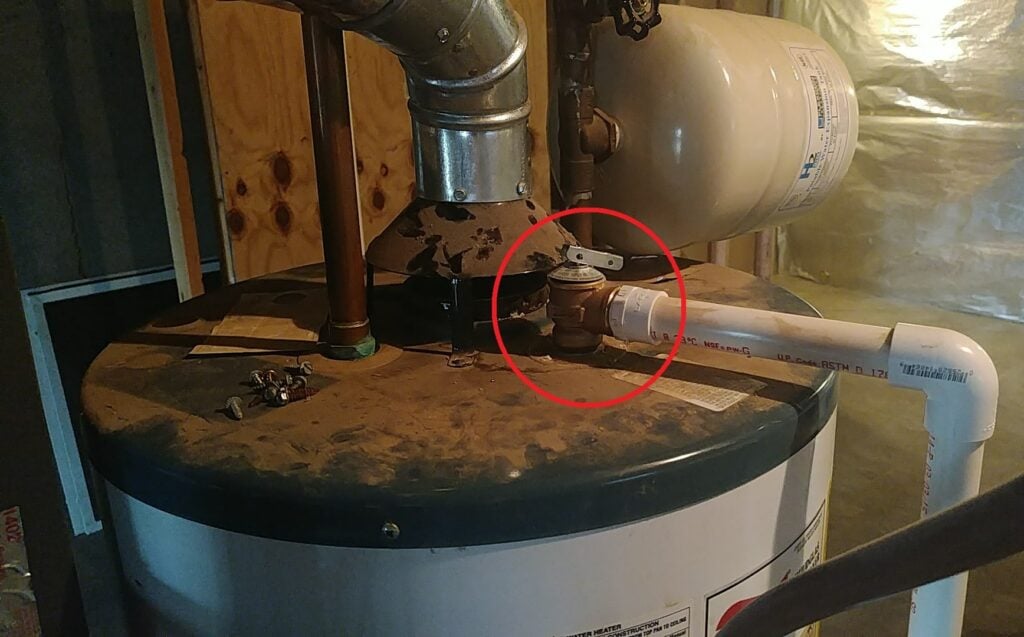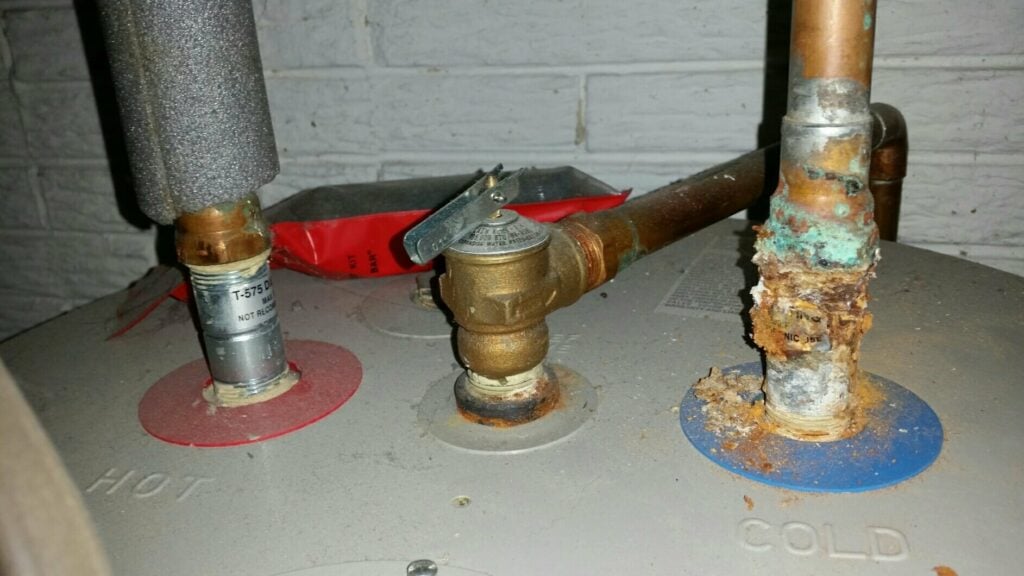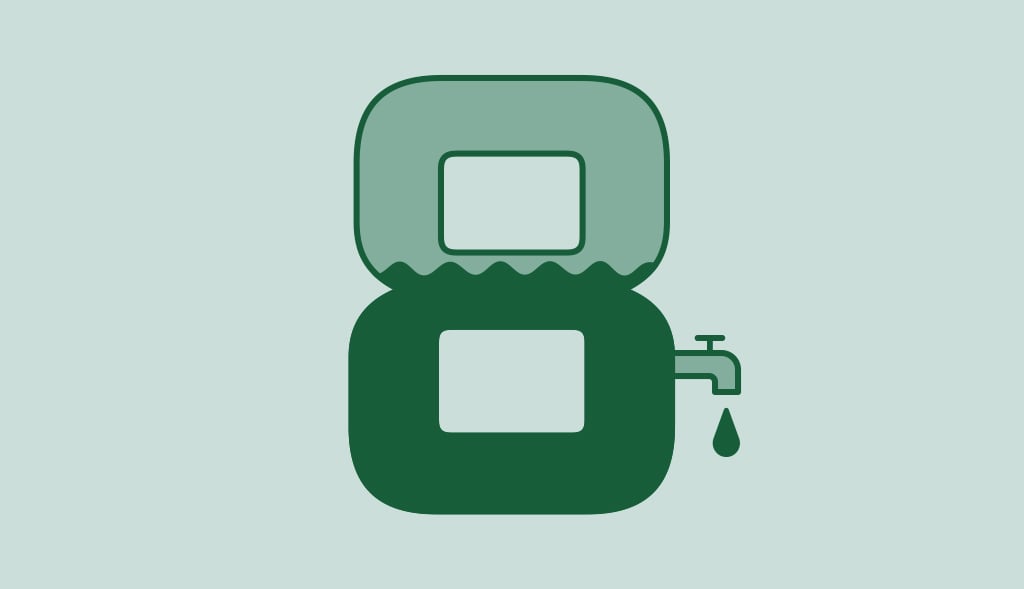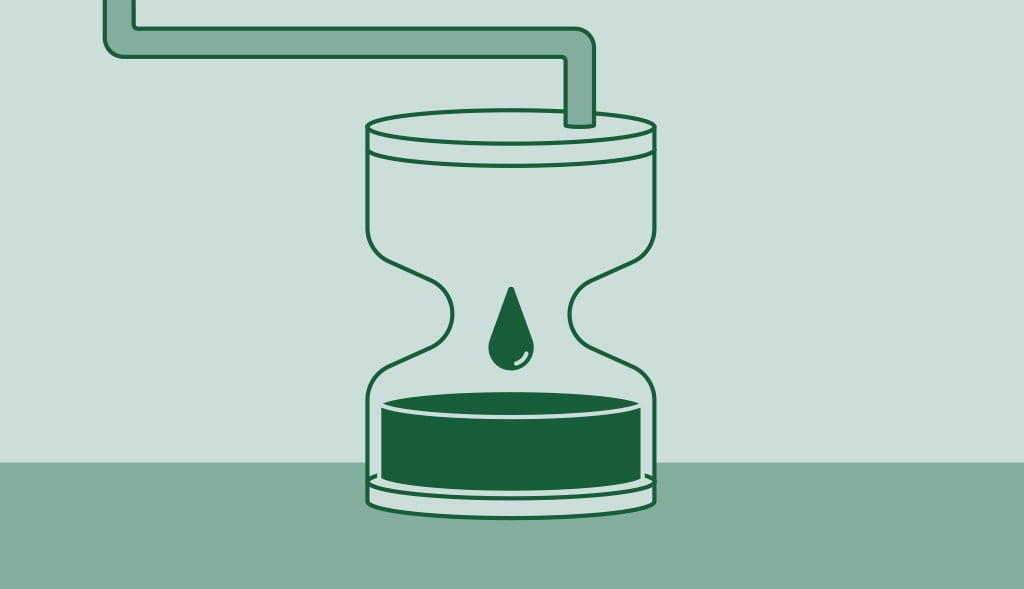Why Your Water Heater is Leaking and How to Fix It
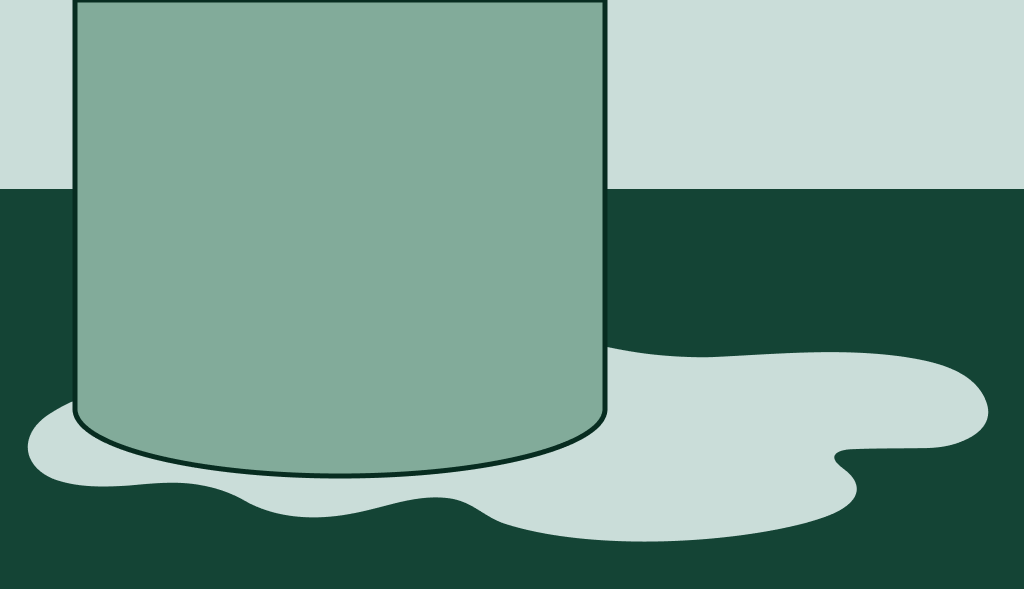
In the US, water leaks in the average home waste 10,000 gallons per year. Worse, 10% of US households have plumbing issues so bad, they waste 32,850 gallons per year. So, if you’ve noticed your water heater leaking or dripping, get to the bottom of the issue ASAP. The sooner you do, the more you get to save water, money, and even the water tank itself.
Why Is My Water Heater Leaking?
Water heaters have a limited lifespan, regardless of quality regulations for manufacturers. Even with efforts to make them last longer, the process to protect the tank is not always perfect and corrosion happens. Magnesium anodes only last a few months before needing to be replaced and the glass lining inside your tank is never perfectly done.
In addition to corrosion, many water heater parts can break and start leaking. Let’s find where the leak is happening to fix it for good.
Safety First: Here’s What You Need To Do When Noticing a Water Heater Leak
If you see a water on the floor near your tank, turn off the water supply and the water heater immediately. For gas water heater, turn off the gas valve.
For a electric water heater, turn off the circuit breaker. This will help prevent further issues from occurring. Now you can safely locate the source of the leak.
Now, let’s dig further and help you find the root cause and solution. It can be harder than you think to locate.
Locate The Water Heater Leak
If you are not sure about where the leak is coming from, dry the area and try to see where the water is coming from. If other appliances in your mechanical room use water, the leak might not be from your tank.
Condensation on a Water Heater
Occasionally, what seems like a leak from your water heater might actually be condensation. When cold water enters the tank, the outside becomes cool. This causes the warm air’s moisture to condense on the tank.
This is particularly true during times of high demand for hot water, such as first thing in the morning or during back-to-back showers. It’s important to tell the difference between condensation and leaking. Condensation is normal and doesn’t need repairs.
Check your unit regularly, especially after heavy use, to determine if the moisture is from condensation or a leak. If you notice any moisture, investigate further to identify the source. If it is condensation, there is no need for concern.
Water Heater Leaking From The Bottom
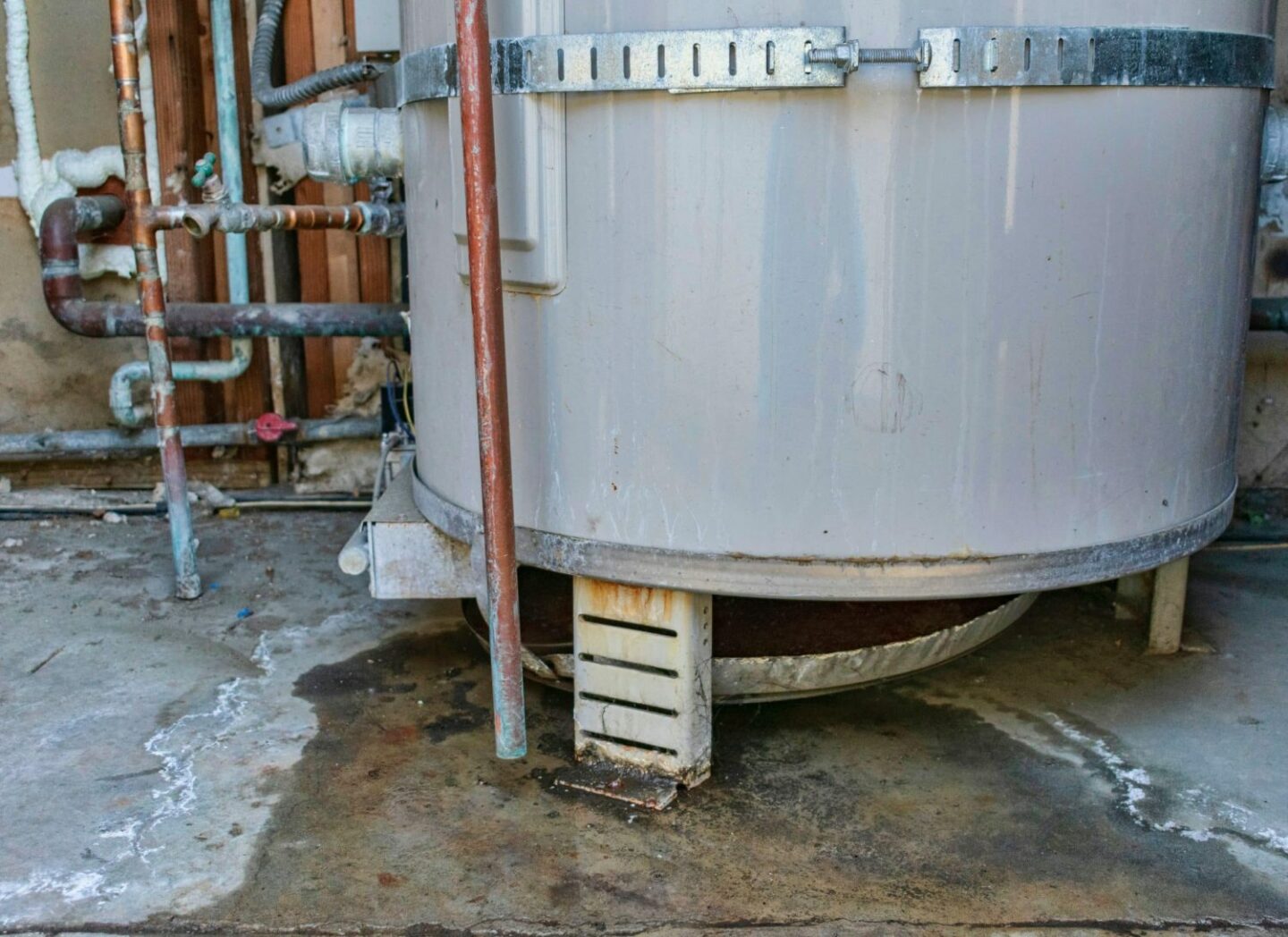
It’s normal to notice the first leak at the bottom of the tank, thanks to gravity. Your water heater has insulation inside a protective casing. This allows water to flow down inside the casing and potentially leak from the bottom of the tank. Keep in mind it can take couple days or even weeks before you notice a leak if it’s happening inside the casing.
This means any part leaking on your tank could potentially look like the problem is at the bottom, but that’s not the case. Let’s check all components that could potentially leak in logical order.
Leaking From The Heating Element (electric water heater)
Removing the two covers located on the front of the tank will allow you to access the heating elements. The gasket in those elements can leak because of their age. If you see a leak around the element, a plumber can replace that part instead of the entire tank. You could also replace it yourself, make sure to follow safety guidelines.
Leaking From the Drain Valve
If the leak is around the drain valve, this indicates that the valve needs replacement. Replacing the valve is also a easy DIY project. I suggest upgrading your valve with a bigger one, making it more efficient and easier for regular maintenance.
Water heater leaking from the top
Leaking from the pressure relief valve
The water heater pressure relief valve leaking is a common problem. If the temperature and pressure relief valve is leaking due to corrosion or not closing properly because of sediment build up inside it, replacing it can be simple DIY projects. This part is sold in every hardware store.
If it’s leaking because of excessive pressure inside your tank and needs to release water, this could indicate a bigger problem and you might need to call a professional.
Leaking from the fittings
Fittings at the top of the water heater could be leaking because of corrosion or installation. If someone recently installed or modified it, leaking fittings would suggest that something was done wrong. You should try removing and reinstalling the leaking fittings to check if they were properly tightened, and apply Teflon tape if necessary.
If the fittings are older, galvanic corrosion can explain the leakage. If it’s the case, replacing the affected fitting is the best solution. We suggest using similar metals to avoid this corrosion reaction. Installing stainless steel fitting on a steel connection can accelerate the corrosion and can be the source of your water heater problems.
Noticed a Water Heater Leak? Act Fast!
Quickly addressing leaks can save water, money, and your tank. Water damage is costly, but routine maintenance can help delay leaks and extend your water heater’s lifespan.
The Corro-Protec Powered Anode Rod creates a protective layer inside the tank, offering permanent corrosion protection—even in hard water.

How to Prevent Water Heater Leaking
Maintenance
To maintain your water heater, drain the tank yearly to remove sediment and check the anode rod. The anode rod is there to take on all the rust and corrosion so your tank doesn’t have to. Over time, it becomes worn out and requires replacement. Staying on top of these tasks can significantly make your water heater last longer and work better.
Powered Anode Rod
If you’re not into the idea of checking and changing out the anode rod now and then, there’s a hassle-free solution. By installing a Corro-Protec powered anode rod, you can say goodbye to regular water heater problems. This one-time fix protects against rust and corrosion without needing any maintenance. It’s a great way to keep your water heater running smoothly for many more years, letting you focus on more important things.
DISCLAIMER: The information provided is for general DIY guidance on water heater maintenance and does not replace professional advice or service. Risks include electric shocks, burns, and property damage. Prioritize safety, follow manufacturer’s guidelines, and consult with professionals if unsure. Comply with local laws and obtain necessary permits. Use this information at your own risk; the provider assumes no liability for any injuries or damages. If in doubt, hire a professional.
Blog
How to Drain a Water Heater – 8 Easy Steps DIY Guide
Water heaters come with a sizeable insulated tank to ensure constant water availability. However, although these appliances are supposed to heat the water and keep […]
How Long Do Water Heaters Last? Much Shorter Than it Could!
How long do water heaters last is a very complex and difficult question to answer. We live in a society that increasingly understands the environmental […]
